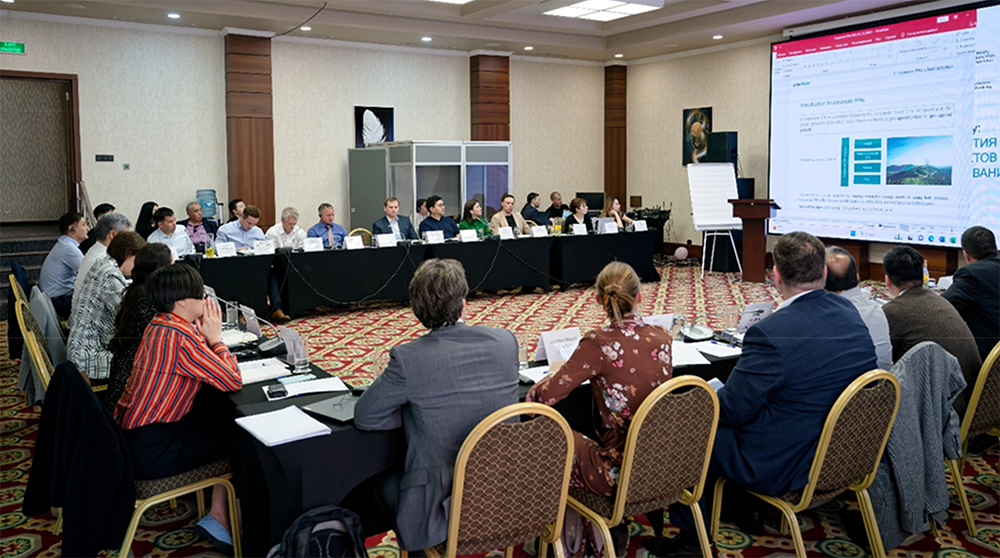On April 19, 2024, in the city of Astana, a roundtable discussion took place on the topic: "Prospects for the Development of Bilateral Renewable Energy Contracts and Balancing Issues," organized by the Renewable Energy Association "Qazaq Green" with the support of the global GIZ project "Development of Climate Policy Potential in Southeastern and Eastern European Countries, the South Caucasus, and Central Asia" (CDCP).
Among the participants at the forum was Zhomart Nurkanov, Deputy Director of Business Development at TGS-Energy LTD. Chairperson of the Qazaq Green Board, Sospanova A.S., presented the current situation regarding bilateral renewable energy contracts in the Republic of Kazakhstan. Craig Menzies, Head of the Energy Department at Global Factor Consulting, provided an overview of international experience in applying corporate PPAs, including success factors and common issues.
Addressing the requirements for balancing by the system operator concerning bilateral renewable energy projects, Zhеnis Duysenov, Director of the Department of Development at the National Electricity Grid JSC "KEGOC," shared insights. Daurеn Zakiryаnov, Project Development Manager at Sungrow Renewables Development, presented Sungrow's interesting experience in implementing energy storage systems.
The main theme of the meeting revolved around the relevance of introducing a system of bilateral PPA contracts in Kazakhstan, which could serve as an alternative to auctions for selecting renewable energy projects. To ensure the effective functioning of this new mechanism, the development of clear legislative rules is deemed appropriate.
Other aspects of bilateral contracts and issues in the balancing market were also discussed. Zhomart Nurkanov noted that the rapid development of renewable energy generation facilities in Kazakhstan and the region is fostering increased interest from leading international equipment manufacturers and Kazakh investors in establishing production facilities in our country. This, essentially, lays the groundwork for creating an industry for the production of almost the entire chain of energy equipment elements, including photovoltaic modules, energy storage systems, towers, generators, and wind turbine blades. This is important for enhancing the country's value and achieving the goal of doubling GDP by 2029. However, investors' aspirations ultimately face the price non-competitiveness of future products due to the lack of sufficient and effective measures to protect the domestic market. Zhomart Nurkanov suggested additional stimulus measures to encourage the use of domestically produced equipment in renewable energy projects, such as exempting these renewable energy facilities from the mandatory requirement to finance renewable energy imbalances and allowing bilateral PPA contracts for these renewable energy projects with capacities of up to 5 MW.

 English (UK)
English (UK)



